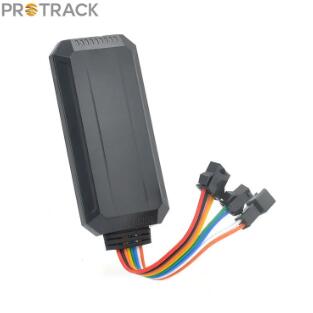The Evolution of Car GPS Trackers: From Simple Navigation to Advanced Vehicle Monitoring
2024-08-22
Car GPS Trackers have come a long way from their initial use as simple navigation tools. Today, they offer a wide range of functionalities that go beyond just helping you find your way. Modern GPS trackers are now essential tools for vehicle security, fleet management, driver safety, and more. In this blog, we’ll explore the evolution of Car GPS Trackers, how they have transformed over the years, and the advanced features they now offer to meet the diverse needs of users.
The Early Days: Navigation and Basic Tracking
When GPS technology first became available for civilian use in the 1980s, its primary function was navigation. The early GPS devices were large, expensive, and primarily used by the military. However, as technology advanced, GPS units became more compact and affordable, paving the way for their introduction into consumer vehicles.
- Basic Navigation: The first GPS systems in cars were used solely for navigation, helping drivers find the best routes to their destinations. These systems provided turn-by-turn directions and significantly improved driving convenience.
- Simple Tracking: As GPS technology evolved, basic tracking capabilities were introduced. This allowed vehicle owners to monitor the location of their cars, which was particularly useful for businesses with fleet vehicles.
The Shift to Real-Time Tracking and Vehicle Security
As GPS trackers became more sophisticated, their capabilities expanded beyond simple navigation and tracking. The introduction of real-time tracking marked a significant milestone in the evolution of Car GPS Trackers.
- Real-Time Tracking: Modern GPS trackers offer real-time tracking, allowing users to monitor their vehicle’s location at any moment. This feature is crucial for both personal use, such as tracking a stolen vehicle, and commercial use, like managing a fleet.
- Vehicle Security: The integration of GPS tracking with vehicle security systems has made it possible to receive instant alerts in case of unauthorized movement or tampering. This has greatly enhanced the security of vehicles, reducing the risk of theft.
Advanced Features: Beyond Just Location Tracking
Today’s Car GPS Trackers are packed with advanced features that offer much more than just location tracking. These features cater to a variety of needs, from enhancing driver safety to improving operational efficiency in businesses.
- Driver Behavior Monitoring: Many modern GPS trackers can monitor driver behavior, including speeding, harsh braking, and rapid acceleration. This data is invaluable for parents who want to ensure their teen drivers are safe and for fleet managers looking to promote responsible driving habits among their drivers.
- Geofencing: Geofencing allows users to set virtual boundaries for their vehicles. If the vehicle enters or exits these predefined areas, the user receives an instant alert. This feature is particularly useful for monitoring vehicle usage, ensuring it stays within designated areas, and preventing unauthorized trips.
- Fuel and Maintenance Monitoring: Some GPS trackers are equipped with sensors that monitor fuel levels and vehicle maintenance needs. This is especially beneficial for businesses with large fleets, as it helps in optimizing fuel usage and reducing maintenance costs.
- Integration with Other Systems: Modern GPS trackers can integrate with other vehicle systems, such as anti-theft alarms, dash cams, and remote diagnostics. This integration allows for a more comprehensive approach to vehicle management and security.
The Role of Car GPS Trackers in Fleet Management
One of the most significant advancements in Car GPS Trackers is their application in fleet management. Businesses with multiple vehicles can now efficiently manage their operations with the help of GPS technology.
- Route Optimization: GPS trackers provide real-time traffic data, helping fleet managers optimize routes for their drivers. This not only reduces travel time but also lowers fuel consumption and increases overall efficiency.
- Driver Accountability: By monitoring driver behavior and vehicle usage, fleet managers can ensure that their drivers are adhering to company policies and driving safely. This accountability helps in reducing accidents and maintaining a good company reputation.
- Cost Reduction: GPS tracking systems help in reducing operational costs by minimizing fuel wastage, preventing unauthorized vehicle use, and reducing the likelihood of accidents through safer driving practices.
The Future of Car GPS Trackers
The evolution of Car GPS Trackers is far from over. As technology continues to advance, we can expect even more innovative features to be integrated into these devices.
- AI and Machine Learning: Future GPS trackers may incorporate AI and machine learning to predict driver behavior, optimize routes more intelligently, and provide more accurate real-time data.
- Enhanced Connectivity: With the rise of 5G technology, GPS trackers will benefit from faster and more reliable data transmission, allowing for even more precise real-time tracking and quicker alerts.
- Sustainability: As electric vehicles become more common, GPS trackers will likely evolve to offer features tailored to EVs, such as monitoring battery levels, finding charging stations, and optimizing routes for energy efficiency.
Conclusion
Car GPS Trackers have evolved from simple navigation aids to powerful tools that enhance vehicle security, monitor driver behavior, and improve fleet management. As technology continues to advance, these devices will become even more integral to our driving experience, offering new features and capabilities that will further enhance their utility. Whether you’re a car owner looking to protect your vehicle or a business managing a fleet, staying informed about the latest developments in GPS tracking technology will help you make the most of these innovative tools.



